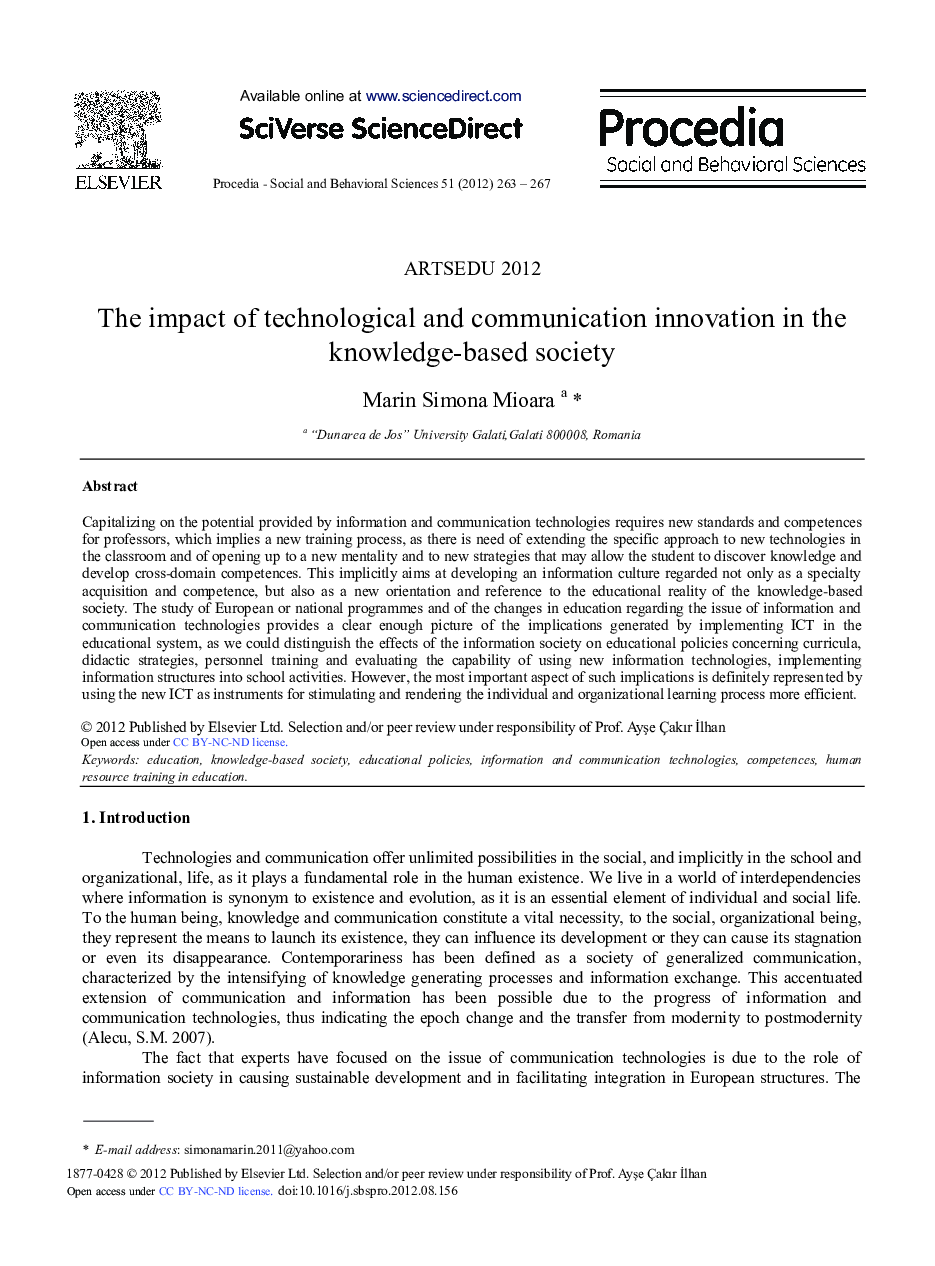| Article ID | Journal | Published Year | Pages | File Type |
|---|---|---|---|---|
| 1120986 | Procedia - Social and Behavioral Sciences | 2012 | 5 Pages |
Capitalizing on the potential provided by information and communication technologies requires new standards and competences for professors, which implies a new training process, as there is need of extending the specific approach to new technologies in the classroom and of opening up to a new mentality and to new strategies that may allow the student to discover knowledge and develop cross-domain competences. This implicitly aims at developing an information culture regarded not only as a specialty acquisition and competence, but also as a new orientation and reference to the educational reality of the knowledge-based society. The study of European or national programmes and of the changes in education regarding the issue of information and communication technologies provides a clear enough picture of the implications generated by implementing ICT in the educational system, as we could distinguish the effects of the information society on educational policies concerning curricula, didactic strategies, personnel training and evaluating the capability of using new information technologies, implementing information structures into school activities. However, the most important aspect of such implications is definitely represented by using the new ICT as instruments for stimulating and rendering the individual and organizational learning process more efficient.
